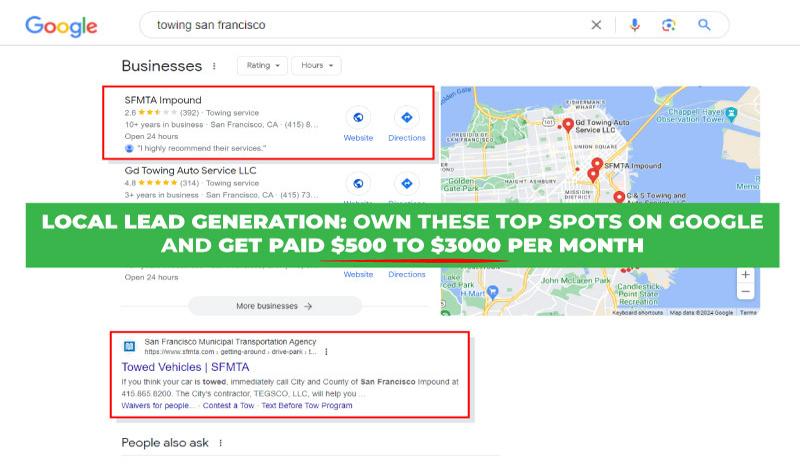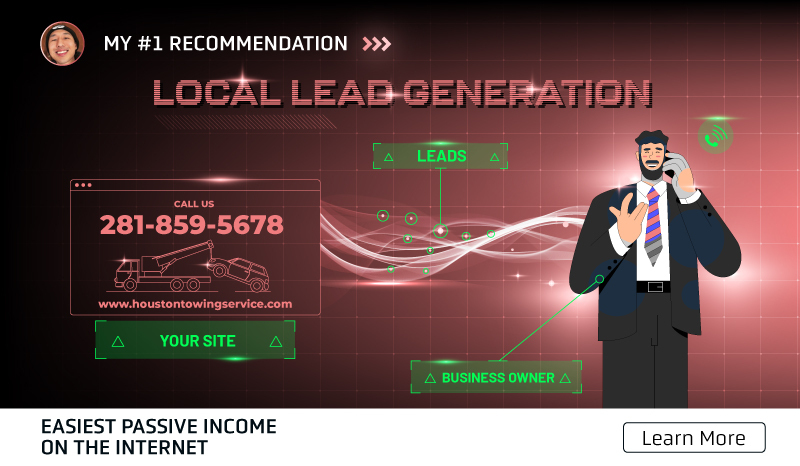How Long Does It Take To Learn SEO? Why Learning SEO is Essential in 2025

It takes 2 weeks to 2+ years to learn SEO. The average time to learn SEO is:
- 2-4 weeks for beginners (2-4 hours per week).
- 3-6 months for intermediates (5-10 hours per week).
- 1-2 years for advanced users (10-15 hours per week, including project work).
The time frame depends on various factors, such as:
- your prior knowledge,
- the time you dedicate to studying,
- the complexity of the SEO strategy,
- and the depth of the expertise you aim for.
This Reddit user estimated that you can have a good understanding of SEO in a year. However, it will take some time before you see results when you apply what you learn. You then need to adjust what you learned and tackle more concepts and techniques. They then summed it up by saying that there is “no end” to learning SEO.

SEO has helped me create several six-figure online businesses. I’ve gone through over a decade of algorithm changes. Learning SEO is a continuous process, and I continue to master new tactics and adapt to new challenges. This article will list the main factors that determine how long it takes to learn SEO, such as your resources and the complexity of the strategy. I’ll provide timeframe estimates and tips on how to pick up the skills faster. I’ll also give a short guide on how to learn SEO and what the common mistakes are to avoid, such as skipping the basics and failure to adapt to changes.
What are the Main Factors That Affect How Long It Takes To Learn SEO?
- Personal factors, such as your existing knowledge of web development, affect how fast you pick up concepts. A web development background will help you grasp technical SEO quickly. Marketing experience may help you better understand content strategy and user intent. Your learning style and time commitment also influence your progress.
- The complexity of the SEO strategy you’re learning affects how long it will take to learn. Fundamental concepts typically take less time than mastering advanced techniques. The competitiveness of your target industry determines the depth of knowledge you need. More competitive markets require more complex SEO strategies.
- The resources you use can speed up or slow down your progress. Courses and mentorships can accelerate the learning process. You will also learn faster by practicing on live websites than by purely studying the theories. Access to SEO tools also gives you real-world experience.
Estimated Time To Learn SEO
- The basics of SEO take 2-8 weeks to learn with consistent effort. The basics include foundational concepts like keyword research, one-page optimization, and content structuring. You can learn the basics through YouTube tutorials, blogs, and intro courses.
- Intermediate SEO skills take 4-12 months to learn through application and practice. Complex topics include local SEO, backlink analysis, analytics data interpretation, and more. These skills can only be improved through experience by working on live projects.
- Mastering advanced SEO takes 1-10 years of in-depth study and experience. Advanced expertise involves staying updated with algorithm changes and mastering technical SEO elements. These elements include schema markup, advanced content structure, technical indexing, and more. Mastering this level requires a great deal of experience in tackling complex challenges. Continuous learning is crucial as SEO is a dynamic field.
Tips To Accelerate Your SEO Learning Journey
- Create a structured plan by setting your goals and breaking down complex topics. Having a clear roadmap helps you stay focused and stay on schedule. It also ensures you don’t miss any crucial lessons. Make sure to track your progress regularly.
- Implement what you learn into hands-on projects. Start your own website and use it as a testing ground. Practical experience reinforces your theoretical knowledge and develops your problem-solving skills.
- Diversify your learning approach by using different resources and methods. Extract information from video tutorials, written guides, podcasts, and courses. Take part in SEO communities, webinars, and industry discussions.
- Learning related skills helps you pick up SEO concepts faster. They also help you understand how SEO fits into the broader digital ecosystem. Related skills include web development, content writing, digital marketing, and web analytics.
How Do You Learn SEO?
- Learn the fundamentals first. Study how search engines work, how to do keyword research, and identify search intent. Understand on-page SEO basics like title tags, meta descriptions, and headers.
- Build up your practical skills by applying what you have learned. Practice using SEO tools and create a website to practice. The hands-on experience will help you understand how SEO works.
- Learn the technical aspects of SEO. Start with learning about site architecture and crawlability. Understand how XML sitemaps and robots.txt work. Learn about page speed and mobile optimization.
- Learn how to create SEO-optimized content. Study how to strategically plan the structure of your content. Understand (Expertise, Authoritativeness, Trustworthiness). Practice writing SEO-optimized content on your website.
- Learn link-building strategies. Understand the differences between good and bad links. Learn how to analyze your competitors’ link profiles. Practice link-building using various outreach techniques.
- Stay updated by following industry experts and joining SEO communities. Subscribe to newsletters and keep track of algorithm changes. Regularly check the news for any changes related to SEO.
Common Mistakes To Avoid When Learning SEO
- Lack of foundational understanding. Jumping into advanced SEO without a thorough understanding of the basics causes confusion. It will also be harder to grasp advanced concepts.
- Learning from outdated or inaccurate resources. SEO strategies can quickly become obsolete due to frequent changes in search engine algorithms. Not checking if the resource is up to date may lead to ineffective or even hurtful SEO practices.
- Failure to apply and test SEO lessons. Lack of practice and practical application will make it harder to grasp concepts. Hands-on experience helps identify what works best for your style.
- Impatient with results. It takes an average of 3-6 weeks before you see results with your SEO application. A common beginner mistake is giving up too early and not tracking your results.
- Failure to communicate with others in the industry. Joining SEO groups or communities keeps you updated and opens up opportunities. Not communicating or networking with others can result in missed collaborations.
A Reddit user says the main mistake in learning SEO is moving on to advanced SEO without a good grasp of the basics. This will lead to more problems down the road.

Is It Hard To Learn SEO?
SEO is easy to learn, but it is hard to master. The basics are simple to learn from free online tutorials. Mastering requires a deep understanding of the ever-changing algorithms. It includes advanced technical skills, critical thinking, and adaptability.
The hardest part of SEO is keeping up with search engine algorithms. The constant algorithm updates mean that the challenges change along with them. What works today may not work tomorrow. Just the same, what is not relevant today may be more important in the next update.
A Quora user says that SEO’s hardest part is the ever-changing algorithms and user behavior. They explained that balancing technical aspects with content quality is a complex process. Authority building and fierce competition are also mentioned. They found that SEO’s changing nature makes it hard to get consistent results.

Why Is It Essential To Learn SEO?
Learning SEO is essential as it drives your website’s visibility and ability to attract organic traffic. It reduces reliance on paid ads and significantly reduces marketing spend. SEO also improves user experience, which leads to customer satisfaction. All business owners should know SEO in 2025. Effective SEO is crucial to maintaining competitiveness and achieving success.
Best SEO Courses
Here are some of the best SEO courses that speeds up your learning process:
- Google SEO Fundamentals by UC Davis - A beginner SEO course on Coursera. It covers the basics, such as keyword research, on-page optimization, and technical SEO.
- Semrush Academy - A program by the popular SEO analytics tool. It offers SEO certification courses that cover the basics and technical SEO.
- SEO That Works by Brian Dean - An annual SEO course. It focuses on content creation, backlinking, and influencer outreach.
How Can You Make Money With SEO?
There are many ways to make money with SEO . You can use it for your own business or for a client. Here are some of the best ideas for making money with SEO:
- Offer local lead generation services. Create niche sites and rank them using SEO. You earn monthly by renting them out to local businesses.
- Start an SEO agency. Optimize your clients’ websites to improve their visibility. Offer a variety of SEO-related service and earn from a variety of pay schemes.
- Build backlinks for clients. Get paid by getting backlinks to your clients’ websites. This is done through guest posting, outreach, or building an authoritative blog.
My Best SEO Business Model
Local lead generation is my number 1 business model that uses SEO. Unlike other SEO-focused business models, it creates predictable passive income. You don’t have to regularly create content. Once your site is ranked and rented, you earn every month hands-free. You only need to update the site if it drops in ranking. I have sites that haven’t been updated since I launched them.

Ranking for global keywords is very difficult. You have to compete with thousands of others trying to do the same. With local lead generation, you try to rank for local keywords. This is significantly easier, and there is less competition. Since you only create content once and update it periodically, it is also highly scalable. You just need to repeat the rank-and-rent. Scaling other business models means increasing content production, which adds costs and risks.
Today, I have several businesses that use SEO. Local lead generation tops all of them and brings me over $52K a month. I’ve used my SEO knowledge to create a local lead gen training program. For a sustainable, long-term business model, check out local lead generation.

Follow Me
Ippei Kanehara
Founder/CEO
$52K per month providing lead generation services to small businesses
Ippei.com is for digital hustlers, industry leaders and online business owners.
His #1 online business recommendation in 2024, is to build your own lead generation business.
